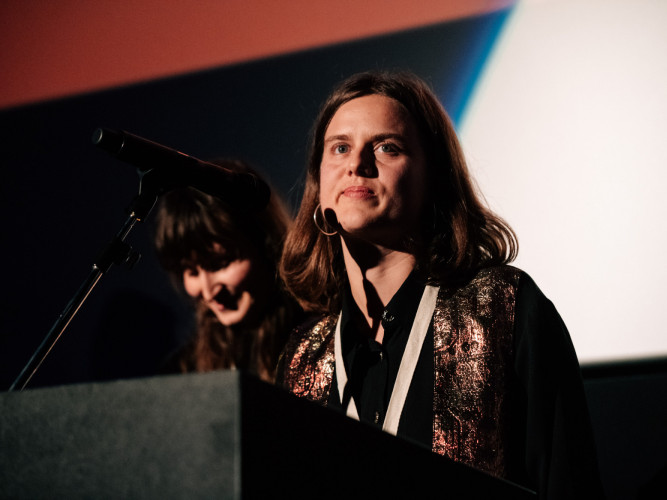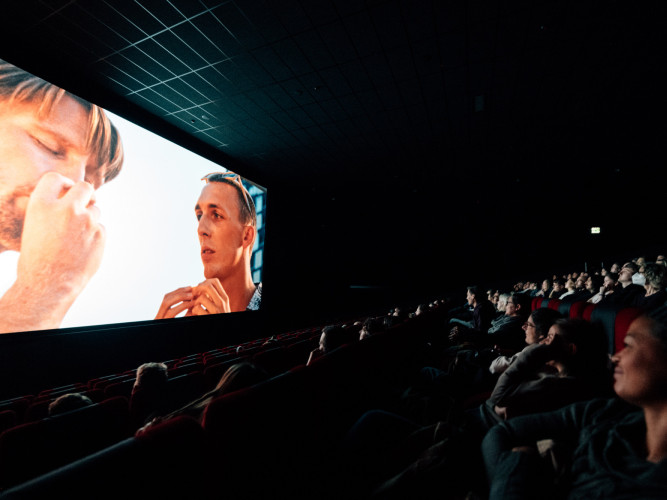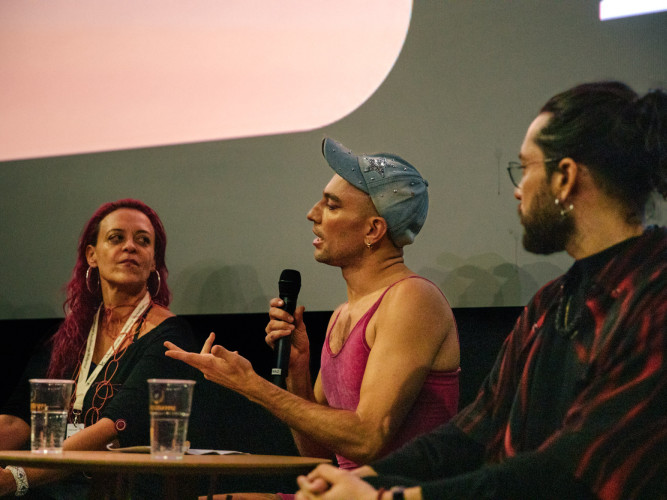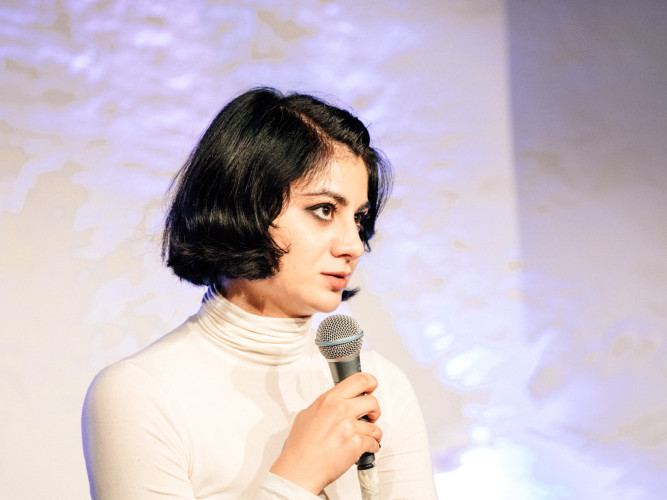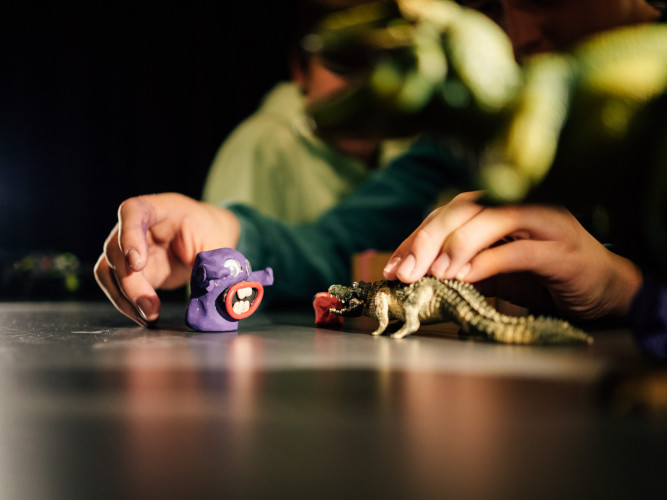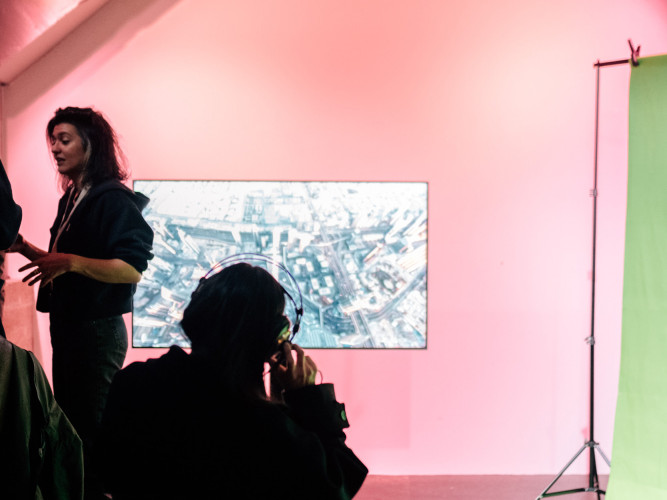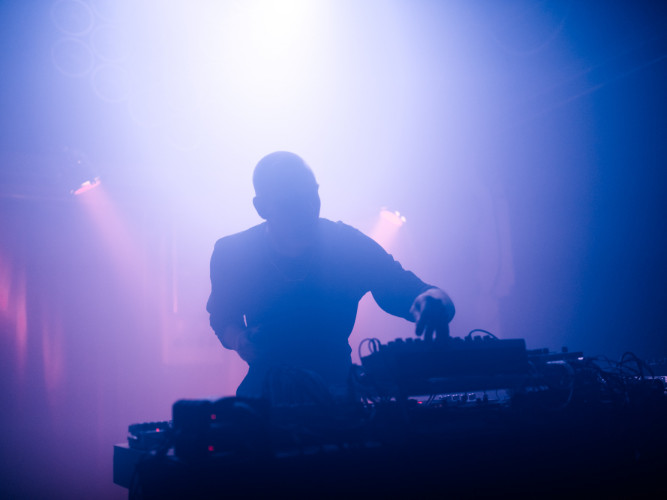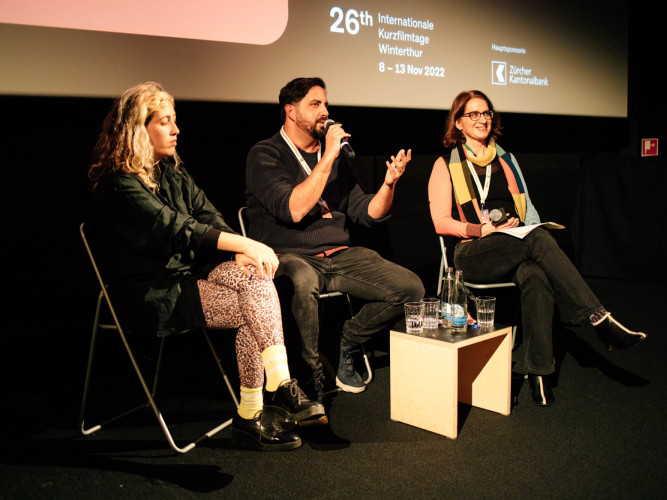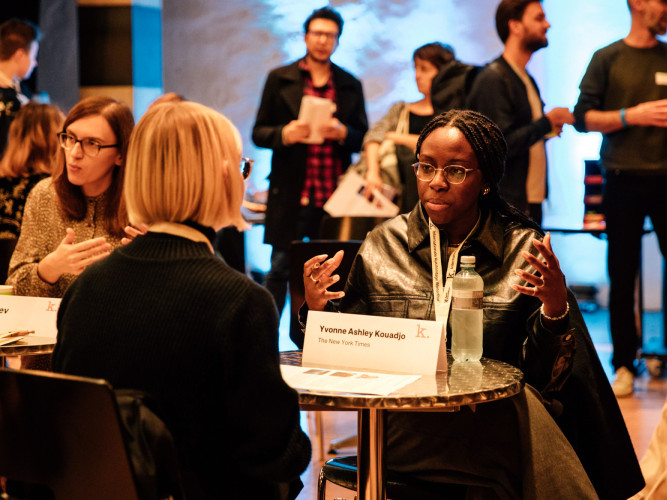Egypt is a country of superlatives. Not only does it look back on millennia of cultural history, it also has one of the world’s largest metropolitan areas – the megacity of Cairo – and the longest river on the planet. Making its way from the south to the north of the country, the Nile has always played an important role in Egypt’s culture. The breathtaking beauty of the landscapes has been captured in countless films. As soon as cinema was invented, Egyptians began making movies. The film industry on the Nile started booming in 1896 and has produced many famous directors and stars, including some who were internationally successful, such as actor Omar Sharif (1932–2015). Next to the cotton industry, the film industry was the country’s biggest economic sector in the mid-20th century. To this day, most films are shot in the Egyptian Arabic dialect, Aamiyya, and they are shown in both the Maghreb and the Mashriq. As a result, the Egyptian dialect has become a lingua franca in the region – a language everyone understands. Egyptians loved the movies. Late-night family trips to dark cinemas were common even with young children, and the box office was ringing. Production companies reinvested part of their considerable profits into new films, and the movie business ran like a perpetual motion machine. Films were made under real market conditions, and since short films don’t make a profit, they hardly existed. There is no state film funding in Egypt.
Short films always offer a certain measure of freedom. In Egypt, they tend to be either first attempts by film school students, which are subject to censorship, or experiments by established directors. Among the latter is the internationally renowned filmmaker Youssef Chahine, whose «Cairo As Seen by Chahine» (1991) is one of the first Egyptian shorts to offer a critical view of the country. Blurring the line between documentary and fiction, Chahine presents a candid yet affectionate portrait of his city, appearing in the film himself, as a filmmaker who produces a commissioned work with his students. In truth, the film was commissioned by French television. Celebrated at its premiere in Cannes, it was banned in Egypt because it supposedly cast the country in a bad light. In 1990s Cairo, VHS tapes of the short film nevertheless circulated in secret.
When the Arab Spring began in 2011, it didn’t just revolutionize the music industry, which abandoned the same old love songs in favour of singing about social issues. The streets were full of theatre performances and concerts, and in film, anything seemed possible. Without permits, filmmakers were shooting tirelessly. A new scene emerged, with directors using the affordable digital equipment to try out styles, document social injustices, and tackle topics not previously talked about. Filmmaking was less about quality than about the issues. In «The Elevator» (2012), Hadeel Nazmy tells the story of a young woman who gets stuck in an elevator, where she is subjected to sexual harassment. To date, the film has been viewed over 4.3 million times on YouTube.
However, when the new government came to power in 2013, the creative awakening on the Nile ended abruptly. The current, politically repressive environment is not conducive to innovative filmmaking. Thus, many directors either practice self-censorship or resort to stereotypical action films and comedies. Much of the population now lives below the poverty line and can no longer afford movie tickets. They stay home and watch films on streaming platforms like Netflix or Shahid. With crowds staying away, the producers’ profits have dwindled, lessening their willingness to invest, which in turn has reduced the volume of film production.
In spite – or perhaps because – of all this, short films are booming. The most established director is Morad Mostafa, whose high-quality works cater to international tastes, screening at hundreds of festivals. However, most Egyptian shorts are still made with a low or no budget, and they usually fly under the radar of censors. «As I Open My Eyes» (2024) by Ghazzal Abdullah tells the story of bulldozers destroying buildings and trees in Egypt’s cities. The short film treats this highly topical issue in an experimental manner, giving the authorities little room for attack.
Today, there are several private initiatives that offer film workshops. In addition, technological advances, especially the growing quality of mobile phone cameras, provide opportunities to make films in a challenging but stimulating environment. It will be interesting to see what the future holds.
Sandra Gysi, Ahmed Abdel Mohsen
Who You Are to MeShort films are less suitable for telling big stories; instead, a reduction to the essentials of life tends to characterize their best moments. They often shine a spotlight on the connections that fundamentally shape people’s lives: friendships, romantic relationships, family bonds.
This programme brings together five contemporary films by Egyptian filmmakers, each dedicated to a specific kind of interpersonal relationship. In «About Separation», Yasmina and her Hungarian friend Yoko grapple with a tense situation as they try to save their friendship before Yoko’s final departure from Egypt. In Sameh Alaa’s «Fifteen», a traumatic experience – the loss of his father – puts a quiet teenager to the test while also offering him an opportunity for growth, as his role changes from big brother to primary caregiver. Randa Ali’s «Mango» portrays a difficult father-daughter relationship: a young woman clears out the apartment of her deceased father, who abandoned her at a young age. In «Salonat», Swiss-Egyptian filmmaker and ethnologist Noha Mokhtar films a conversation between newlyweds. They talk about their arranged marriage – known as a «salon marriage» in Egypt – and about their future home and life together. Finally, in «Objects Are Closer Than They Appear», Naseem tries to save his current date by borrowing money from his sister. But she struggles with her own family drama.
Curated by Laura Walde and Senta van de Weetering
with the kind support of: 





